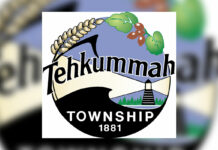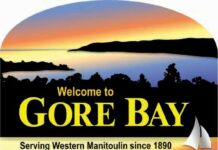AUNDECK OMNI KANING—Indigenous Tourism Ontario (ITO) has not been idle during a pandemic whose fallout threatens to see 75 percent of Indigenous tourism-based businesses either shut down temporarily or permanently. The organization has launched a couple of teaser virtual tours online that utilize cutting edge technology to deliver a virtual reality experience based on Indigenous tourism products and is focussing some of its efforts on culinary tourism experiences.
“We are embracing technology to create virtual reality tours utilizing augmented reality to reach out to those consumers who are interested in the products we have to offer,” said ITO executive director Kevin Eshkawkogan. Two “teaser” examples of the new virtual reality tours can be found online at youtu.be/iemybReEa9g and youtu.be/DqDEbLsJrcA.
“A lot of the thinking came out of what we learned from the Great Spirit Circle Trail,” said Mr. Eshkawkogan. “That really helped to shape and form our perspective as we reflected back on some of the experiences.”
Not all of those experiences proved to be pleasant, especially for the tour guides who shepherded tourists through the initial experiences. “They ran into a lot of stereotypical experiences and some of those were flat out racist,” he said. “That proved to be a significant challenge for some of our guides who were triggered by questions on the residential school system.”
One of Mr. Eshkawkogan’s favourite experiences was acting as a guide in the Ojibwe Cultural Foundation’s healing lodge, but he noted that he faced tough questions and occasionally some outright disruptive behaviour. “Overall, it was a good mix, but then you would have what I call the ‘dragged along by the wife’ husbands who did not want to be there and would act out.”
Some of the challenges of in-person cruise excursion groups are dealt with by the virtual reality connection, as the target market will not be dragging reluctant spouses along for the ride.
In the augmented reality format, the viewer is able to “click” around the scene to get a 360-degree perspective. “It’s a new, simple way to experience virtual reality,” said Mr. Eshkawkogan. “You can also use a headset or a virtual reality app.”
The plan is to keep updating and adding product on a regular basis.
As the longer and more detailed virtual tours will be monetized they will provide business owners with another revenue stream while maintaining control over their own stories.
In fact, that “telling our own stories” aspect of the project is central to its zeitgeist. “For far too long we have let other people tell our stories,” said Mr. Eshkawkogan. That has led to the promulgation of stereotypes and distortions of Indigenous culture and traditions. “We will be able to tell our own stories on our own terms.”
The Great Spirit Circle Trail experience also demonstrated clearly that there is a global interest and market for Indigenous tourism products. The virtual reality products will enable potential clients to satiate their interest during the pandemic and better explore the possibilities available to them. “We have to develop different approaches while we are in the midst of a global pandemic,” he said. “ITO is creating the infrastructure and Indigenous tourism operators will be the beneficiaries. It is an exciting time for business.”
Although 75 percent of Indigenous businesses are either temporarily or permanently shut down during the pandemic, ITO hopes that this new initiative will lure many back into the industry and help lay the foundations for new product offerings.
Among those offerings will be a series focussing on Indigenous culinary, hosted by well-known Indigenous chefs, that will reach out to both domestic and oversea foodies.
Currently, ITO is working with Mukwa Adventures out of Spanish and Great Lakes Adventure Camps, whose products span territories from Killarney and the French River through to Sault Ste. Marie and on to Lake Superior, but more are coming onboard every week.





